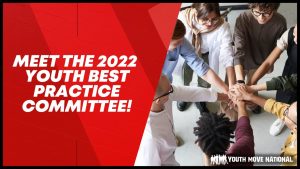Youth MOVE National (YMN) is a youth-driven organization dedicated to improving services and systems that support positive growth and development by uniting the voices of individuals who have lived experience in various systems. A major part of that is working to expand and enhance the Youth Peer Support workforce!
The Youth MOVE Change Initiative (YMCI) is an effort within YMN that seeks to amplify the Youth Peer Support movement with a focus on BIPOC & LGBTQ+ communities. As part of this initiative, we are launching “Intersectional Perspectives,” an online gallery featuring youth and young adults with lived experience. Throughout the life of this project, YMCI participants affirmed the importance of learning from other leaders with lived experience.
Intersectionality is a term coined by Kimberlé Crenshaw, an American civil rights advocate and a leading scholar of critical race theory. The concept of intersectionality describes the ways in which systems of inequality based on gender, race, ethnicity, sexual orientation, gender identity, disability, class, and other forms of discrimination “intersect” to create unique dynamics and effects. For example, when a Black, Muslim, trans woman wearing a Hijab is being discriminated against, it would be impossible to dissociate her trans identity from her Muslim identity or to isolate the dimension(s) causing her discrimination. Most often, multiple forms of inequality are experienced simultaneously, and must therefore be analyzed and addressed together in order to prevent one form of inequality from reinforcing another. Our gallery is called “Intersectional Perspectives” because we want to uplift recommendations and experiences of youth and young adults intentionally, at various intersections of identity.
Here’s an example of what this will look like from Tashia Wing-Roberson:

What advice would you offer people looking to support Black communities Impacted by child-serving systems?
“To support Black communities impacted by child-serving systems is to recognize the history of implicit bias and white supremacy that infiltrate these systems. Black communities are often disproportionately represented in these systems and subject to disparities in outcomes. Scholars even argue that the child serving systems, especially child welfare, is another way to police Black families”
Stay tuned to read more from many others on Intersectional Perspectives: Amplifying Voices of Experience!




